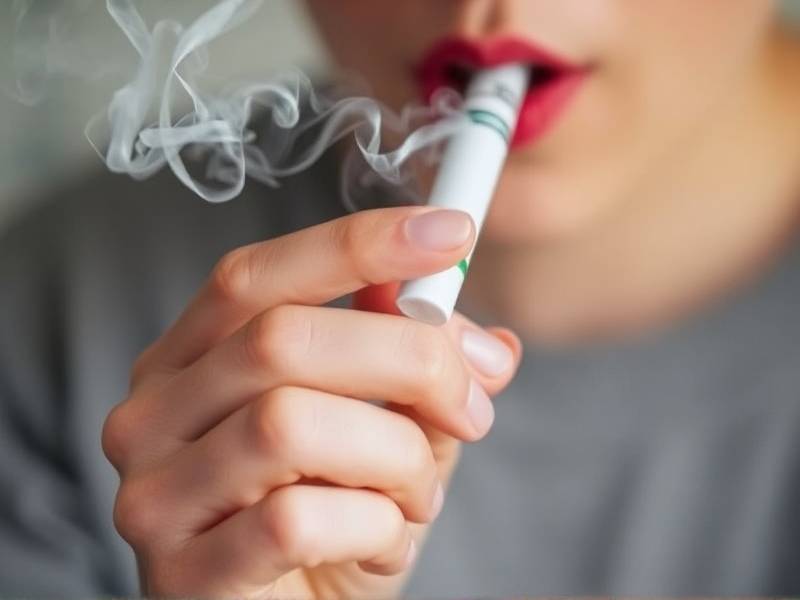Why Does Blood Sugar Rise After Quitting Smoking?
Understanding the Blood Sugar Surge Post-Quitting Smoking: What You Need to Know

Introduction: The journey to quitting smoking is a significant step towards better health. However, many individuals who have quit smoking may experience an unexpected side effect: a rise in blood sugar levels. This article delves into why this happens and what it means for your health.
Understanding the Link Between Smoking and Blood Sugar

Subheading: The Impact of Nicotine on Blood Sugar
Nicotine, the primary addictive substance in cigarettes, has a profound effect on the body's metabolism. When you smoke, nicotine causes a surge in blood sugar levels as it stimulates the release of adrenaline. This temporary spike can lead to increased energy and alertness but also disrupts normal blood sugar regulation.
Subheading: The Body's Response After Quitting
Once you quit smoking, your body begins to adjust to the absence of nicotine. This adjustment period can lead to fluctuations in blood sugar levels. Here's why:
- Hormonal Changes: Quitting smoking triggers changes in hormone levels, including insulin resistance, which can cause blood sugar to rise.
- Weight Gain: Many people gain weight after quitting smoking, which can also contribute to higher blood sugar levels.
- Stress: The stress of quitting smoking can lead to increased cortisol production, a hormone that can raise blood sugar.
How to Manage Post-Quitting Blood Sugar Spikes
Subheading: Lifestyle Adjustments for Stable Blood Sugar
Managing blood sugar levels after quitting smoking involves making some lifestyle changes:
- Balanced Diet: Focus on a diet rich in fiber and whole foods that help regulate blood sugar.
- Regular Exercise: Physical activity can improve insulin sensitivity and help control blood sugar levels.
- Hydration: Stay well-hydrated as dehydration can affect your body's ability to regulate blood sugar.
- Adequate Sleep: Ensure you get enough sleep as lack of sleep can disrupt glucose metabolism.
The Role of Professional Support
Subheading: Consulting Experts for Guidance
If you're experiencing persistent high blood sugar after quitting smoking, it's essential to consult healthcare professionals. They can provide personalized advice and may recommend additional strategies or medications if necessary.
Conclusion: Quitting smoking is a commendable goal that comes with various health benefits. While dealing with rising blood sugar post-quit might seem daunting, understanding the causes and taking proactive steps can help manage this side effect effectively. Remember, every step towards better health is a step forward.
By addressing these factors and adopting healthy habits, you can ensure that your journey towards a smoke-free life is smooth and supported by stable health metrics like blood sugar levels. Stay committed, stay informed, and celebrate each victory along the way!
